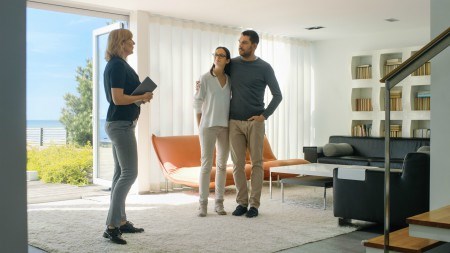So your house has been sitting on the market for longer than you would have liked. Now what?
Adrian Goslett, CEO of RE/MAX of Southern Africa notes that while selling a home in the current economic climate may not be as smooth sailing as in the past, he says that if the correct factors are in play, it should also not be too difficult.
According to Goslett, there are usually three key reasons why a home may not be selling, but these situations are relatively easy to adjust and fix. They are:
Price
Goslett says that this is one of the most common reasons why homes don’t sell. While there might be a buyer for every home, it’s the buyers, not the sellers, who ultimately determine the market value of a home. “In the current market,” says Goslett, “over pricing has led to many properties being on the market much longer than they should be, and the longer a property is on the market, the less likely it is that the seller will get their initial asking price. On average sellers can expect their homes to spend between 30 and 60 days on the market, if it is correctly priced.”
Condition of the property
If your home doesn’t appeal to you, it certainly won’t appeal to anyone else. In a buyer’s market, there is a lot of competition. Added to this, buyer’s in this kind of market are fussy - they have so much choice that they really don’t have to settle.
“This means that sellers should only put their home on the market once it is in as good a condition as they can possibly achieve,” says Goslett, who advises sellers to take a look at the condition of other homes in their area that are currently for sale and evaluate how their condition compares to your home. “Your property needs to outshine the competition, so consider a minor facelift such as a coat of paint and undertake any necessary repairs. Make sure the garden is neat; that all unnecessary clutter is tidied away both inside and out and that the home has kerb appeal,” Goslett says.
Marketing plan
Pictures really do say more than 1000 words – a point that Goslett says sellers should remember when their home is on the market. Just like you want to put your best side forward when being photographed, so your house should be photographed showcasing its best characteristics. In addition, Goslett says that many online listing sites have found that homes which are advertised with more pictures that potential buyers can review, receive more hits than those with fewer pictures.
Added to this, Goslett notes that virtual tours are becoming more and more common as a means of showcasing properties for sale. “If your home is being filmed for a virtual tour, you should ensure that it is really being showcased to its best advantage,” he says. Aside from ensuring that it is clean and tidy, Goslett says sellers should, for example, set the dining room table, put the best linen on the beds and have a colourful centrepiece on the kitchen counter. “It’s all these little details that add up to make a good impression,” he says.
Goslett says that sellers should consider the showcasing of their property as an interview. This is because it involves presentation and first impressions, which are key factors that can help or hinder a potential sale. “Always do what you can to highlight the best features of your home,” advises Goslett, “instead of relying on the fact that potential buyers will notice them of their own accord.”
He says that in buyer's markets, it is especially important to pull out all the stops and make your home stands out above the others on the market. “Be objective about why a buyer would choose your home over all the other homes for sale in the area and if you don’t think it’s likely, start by relooking at the three factors as mentioned above,” he says.
Goslett concludes by saying that in this kind of a market, timing is everything as statistics show that a property sold within the first four weeks is generally sold for the seller’s asking price – if it has been priced correctly, is in a good condition and has been showcased to demonstrate its best features. Houses that stay on the market for five to 12 weeks generally sell for 3% less, while those on the market between 13 and 24 weeks sell for up to around 6% less. Houses that have been the market for 24 weeks or more are expected to sell for up to 10% less than the original asking price.

